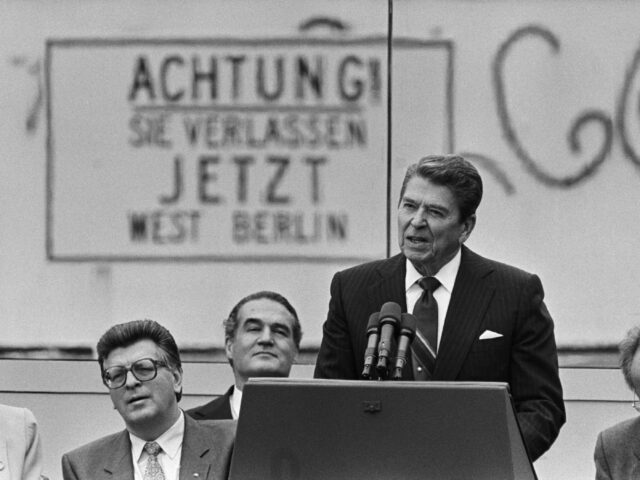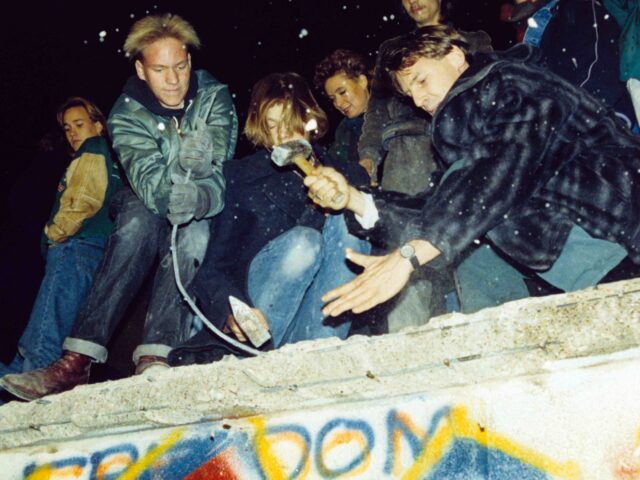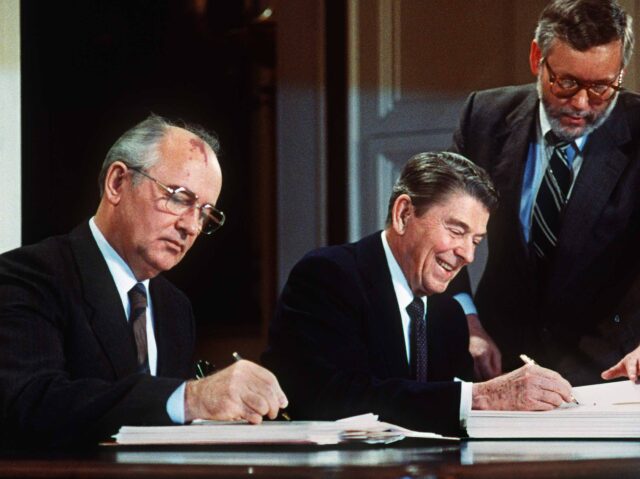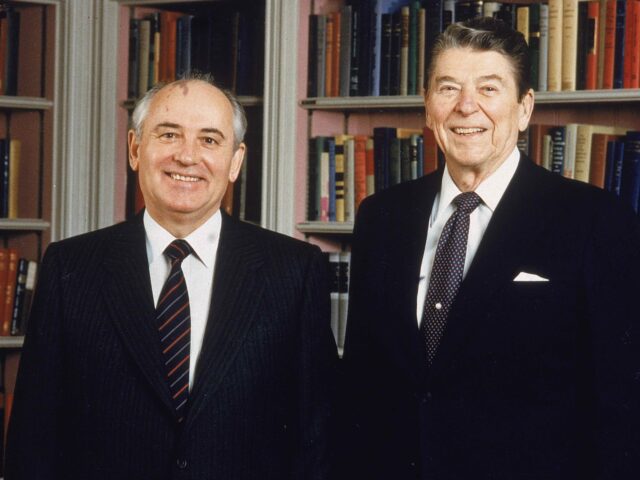Mikhail Gorbachev, the leader who oversaw the end of the Soviet Union, died Tuesday at the age of 91, according to Russian news agencies, via the Associated Press.
Born to a peasant family in Stavropol in 1931, Gorbachev watched the famines and purges of the 1930s, and the struggles of the Second World War, before embarking on a career in the Communist Party in the postwar era. He rose quickly through the ranks, recognized for his intellect and his skill and an administrator. He was viewed as a young leader who could rejuvenate the country and the party, as older leaders faded and as his predecessors, Yuri Andropov and Konstantin Chernenko, died after short terms in office.
Gorbachev assumed power in 1985 during a period of growing confrontation with the U.S., when President Ronald Reagan had strengthened America’s anticommunist posture. The Soviet Union and its satellites were falling behind economically, as computers made the Western economy vastly more productive, and the Eastern bloc fell increasingly into debt.

Ronald Reagan, making his famous challenge to Mikhail Gorbachev to tear down the Berlin Wall. (Getty)
When Reagan launched an ambitious program of defense spending, including research into space-borne missile defense systems, Gorbachev realized that the Soviet Union would struggle to match the U.S. He indicated an openness to talks with Reagan, and began a process of internal reform, known as perestroika. Gorbachev encouraged greater openness, or glasnost, within Soviet institutions, although the country remained deeply repressive, imprisoning political dissidents and those who wanted to leave.
After a series of talks with Reagan, Gorbachev signed the Intermediate-Range Nuclear Forces (INF) Treaty with the U.S. in 1987. It was the most significant arms reduction agreement between the two countries, and reduced tensions with the West. But Gorbachev could not contain the growing unrest at home. In what 18th century philosopher Alexis de Tocqueville might have observed was a confirmation of his theory of revolutions — that they happen during times of rising expectations — the Soviet bloc began to unravel.
The trigger was the fall of the Berlin Wall in 1989, after an East German bureaucrat accidentally told the public that the border to the West would be opening immediately. When thousands of overjoyed Germans swarmed the hated barrier and tore it down, the world waited to see what Gorbachev would do.

In this picture taken on November 10, 1989 in Berlin, West-Berliners break the Berlin Wall with hammers and crosses. – The fall of the Berlin Wall in 1989, when thousands of Germans joyfully danced atop its graffiti-covered remains, to some heralded the “end of history” in a globalised world. Thirty years later, the return of hard frontiers made of bricks, concrete and razor wire symbolises stark new political realities that are a far cry from the West’s heady optimism in the era when the Soviet bloc imploded. (Photo by STRINGER / dpa / AFP) / Germany OUT (Photo by STRINGER/dpa/AFP via Getty Images)
Rather than send in the tanks, as previous Soviet leaders had done, Gorbachev allowed the Berlin Wall to fall — and allowed similar “Velvet Revolutions” in other Soviet satellites (though Romania had a violent transition).
Soon the Baltic states of Lithuania, Latvia, and Estonia — never comfortable under Soviet domination — broke free. And in 1991, a group of disgruntled Soviet officials and military leaders attempted to oust Gorbachev from power while he was away at his summer home. The coup failed, and Gorbachev returned to Moscow — though his influence began to face. By the end of the year, the Soviet Union had fallen, to be replaced by the Russian Federation and a series of former Soviet republics in Europe and Central Asia.
The end of the Soviet Union meant the end of the Cold War, and the triumph of the West, as democracy spread throughout the world. So, too, did nationalism and religious fundamentalism, which created new conflicts and challenges. Gorbachev left politics, but remained widely respected — especially in the West — as an elder statesman.
He is most fondly remembered in the United States as the man Reagan challenged — “Mr. Gorbachev, tear down this wall!” — but later came to respect, and who left a legacy of freedom.

Soviet leader Mikhail Gorbatchev (L) and US President Ronald Reagan sign 08 December 1987 at the Washington summit a treaty eliminating US and Soviet intermediate-range and shorter-range nuke missiles. AFP PHOTO / AFP / – (Photo credit should read -/AFP via Getty Images)
Gorbachev’s death comes at a time of renewed tensions between Russia and the West — in the wake of Russian President Vladimir Putin’s invasion of Ukraine, seen by many as an attempt to reverse Gorbachev’s reforms and restore some of the old Soviet territory and military glory. Putin, who has described the collapse of the Soviet Union as a “genuine tragedy,” represents a nostalgia for the era before Gorbachev — a sentiment that overlooks the poverty and repression of communism, and might yet end up restoring both.
Joel B. Pollak is Senior Editor-at-Large at Breitbart News and the host of Breitbart News Sunday on Sirius XM Patriot on Sunday evenings from 7 p.m. to 10 p.m. ET (4 p.m. to 7 p.m. PT). He is the author of the recent e-book, Neither Free nor Fair: The 2020 U.S. Presidential Election. His recent book, RED NOVEMBER, tells the story of the 2020 Democratic presidential primary from a conservative perspective. He is a winner of the 2018 Robert Novak Journalism Alumni Fellowship. Follow him on Twitter at @joelpollak.

COMMENTS
Please let us know if you're having issues with commenting.